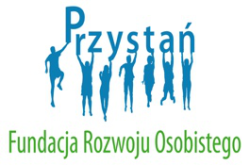The most important result of the project is a innovative teaching toolkit developed by the partners to support teachers in preventing the deterioration of primary school students' learning outcomes due to the overuse of technology, in particular computers and smartphones, by developing their social and personal skills.
The developed teaching tools are aimed at two groups of primary school students:
- 6 - 9 years old
- 10 – 14 years old.
The toolkit consists of:
- a questionnaire aimed at determining how primary school students use technologies such as smartphones, computers and what is the level of students' social and personal skills
- teaching programs and lesson plans aimed at developing social and personal skills in the environment of existing technology, implemented as part of school classes
- a tutorial for teachers containing tips on using individual methods (e.g. tutoring, coaching) to develop students' social and personal skills in the environment of existing technology
- tutorials for parents containing tips on how to develop children's social and personal skills in everyday life in the context of existing technology
The project is a response to the situation in which there is no single universally accepted list of social and personal skills. Various approaches to teaching these skills are proposed in the literature, but the project focuses on social and personal competences, which are defined as soft skills in accordance with the Recommendations of the Council of the European Union of 22 May 2018 and which are key competences.
The developed teaching toolkit includes materials addressed to primary school staff, including psychology specialists, pedagogues, teachers, and school principals.
The developed tools also allow parents to increase their awareness of addiction prevention and the impact of technology on the development of skills and learning outcomes of their children. Using developed tools parents can acquire skills in supporting the development of social and personal competences and to maintain balance in the use of technology by their children. They also aim to motivate them to promote this idea among other parents.
However, the main beneficiaries of the activities carried out in the project are primary school students, especially students at risk of exclusion due to addiction to smartphones, computers and poor academic performance, who have a chance to develop their social and personal skills, as well as develop healthy and constructive habits in using technology and spending free time.
The materials contained in the toolkit are placed in an open repository on the website of both project partners, which is available to all teachers in the EU.
QUESTIONNAIRE ON THE USE OF NEW TECHNOLOGIES
A tool that allows you to determine whether your child is using technology in a safe and sustainable way.
In the case of children aged 6-9 years, it is recommended that the parent completes the questionnaire together with the child. Children aged 10-14 can complete the questionnaire themselves.
After consultation with parents, teachers can also support children in completing the questionnaire at school.
![]() Questionnaire on the use of NT-6-9 years
Questionnaire on the use of NT-6-9 years
![]() Questionnaire using NT-10-14 years
Questionnaire using NT-10-14 years
QUESTIONNAIRE OF PERSONAL AND SOCIAL COMPETENCES
A tool that allows you to determine the level of personal and social competences of a child.
In the case of children aged 6-9 years, it is recommended that the parent completes the questionnaire together with the child. Children aged 10-14 can complete the questionnaire themselves.
After consultation with parents, teachers can also support children in completing the questionnaire at school.
![]() Competence questionnaire – 6-9 years old
Competence questionnaire – 6-9 years old
![]() Competence questionnaire - 10-14 years old
Competence questionnaire - 10-14 years old
TUTORIAL FOR TEACHERS
The tutorial is a tool addressed to teaching staff, in particular educators, pedagogues, school psychologists, providing group and individual support in the development of personal and social competences of primary school students in the context of dynamically developing technology. It contains knowledge about the balanced use of technology and social and personal competences, as well as practical tips and examples of how to work with students and parents involved in training with children. In the tutorial, teachers can find scenarios on working with students using the tutoring method and with parents using the coaching method.
LESSON PLANS
Lesson plans are a tool for teachers to use during group lessons. They contain scanrios of the lessons and define effective work methods. They are also enriched with tips on how to carry out group activities.
![]() Lesson plans for 6-9 years old students - module 1
Lesson plans for 6-9 years old students - module 1
![]() Lesson plans for 10-14 years old students - module 1
Lesson plans for 10-14 years old students - module 1
![]() Lesson plans for 6-9 years - module 2
Lesson plans for 6-9 years - module 2
![]() Lesson plans for 10-14 years - module 2
Lesson plans for 10-14 years - module 2
![]() Lesson plans for 6-9 years - module 3
Lesson plans for 6-9 years - module 3
![]() Lesson plans for 10-14 years - module 3
Lesson plans for 10-14 years - module 3
TUTORIAL FOR PARENTS – short version
The short version of the tutorial is a tool addressed to parents who, in a family environment, want to support their children in developing social and personal competences and shaping healthy habits related to the sustainable use of technology. The short version of the tutorial contains basic knowledge about the sustainable use of technology and social and personal competences, as well as basic assumptions on how to train with a child at home.
![]() Tutorial for parents - short version for download
Tutorial for parents - short version for download
TUTORIAL FOR PARENTS – extended version
The extended version tutorial, similarly to the short version tutorial, is a tool addressed to parents who, in a family environment, want to support their children in developing social and personal competences and shaping healthy habits related to the sustainable use of technology. The extended version of the tutorial contains more detailed knowledge than the shortened version regarding the balanced use of technology and social and personal competences, as well as practical tips, examples, and exercises that parents can use when training with their child at home. In the tutorial, parents can find scenarios for conducting training aimed at strengthening specific skills and habits.
![]() Tutorial for parents - extended version to download
Tutorial for parents - extended version to download
To disseminate the project and its results, two papers on LifeComp and educational innovation have been published in a monographic journal, which are described in detail below:
Ancheta-Arrabal, A., Donato, D., Giménez, N (2023) La competencia digital y el uso responsable de herramientas digitales en la educación obligatoria. diseño de una propuesta pedagógica para la innovación. In Blanca Berral Ortiz; José Antonio Martínez Domíngo; Daniel Álvarez Ferrándiz & Juan José Victoria Maldonado (eds.) INVESTIGACIÓN E INNOVACIÓN EDUCATIVA EN CONTEXTOS DIFERENCIADOS (pp.869-880). Dykinson, Madrid.
Ancheta-Arrabal, A. y Uzarska-Bachmura, M. 2022. La realidad hipertecnológica de la infancia y el equilibrio con la LifeComp. Cuadernos de pedagogía, Nº 528, pp. 118-123.



